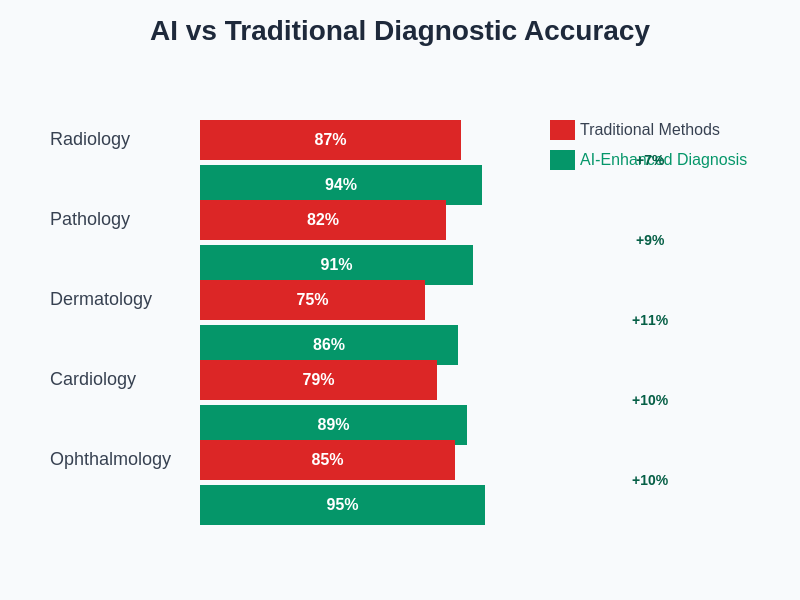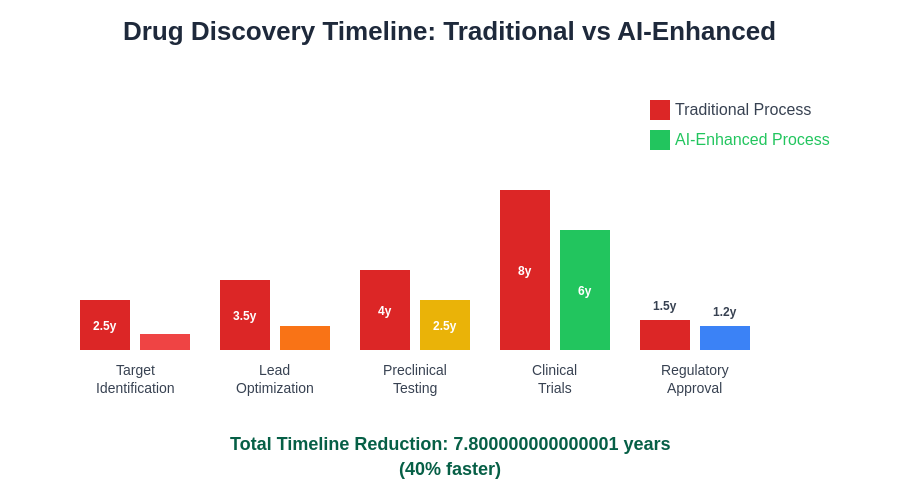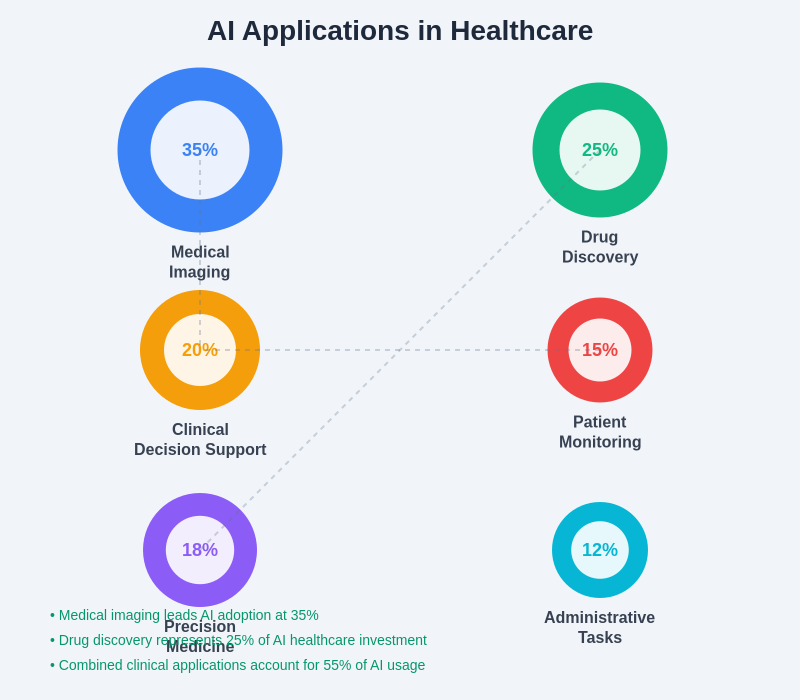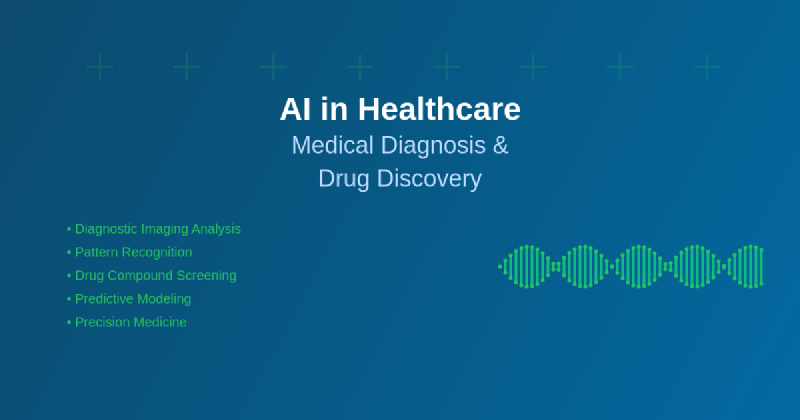The intersection of artificial intelligence and healthcare represents one of the most profound technological transformations in modern medicine, fundamentally reshaping how diseases are diagnosed, treatments are developed, and patient care is delivered. This revolutionary convergence has created unprecedented opportunities for improving patient outcomes, accelerating medical research, and addressing some of the most challenging health issues facing humanity. The integration of AI technologies into healthcare systems worldwide has demonstrated remarkable potential for enhancing diagnostic accuracy, reducing treatment costs, and democratizing access to high-quality medical care across diverse populations and geographic regions.
Explore the latest developments in AI healthcare applications to understand how cutting-edge technologies are transforming medical practice and patient care delivery systems. The rapid advancement of AI in healthcare continues to push the boundaries of what is possible in medical science, creating new paradigms for understanding disease mechanisms, predicting health outcomes, and developing personalized treatment strategies that were previously unimaginable.
The Foundation of AI-Driven Medical Innovation
The application of artificial intelligence in healthcare has evolved from experimental research projects to essential clinical tools that are actively transforming patient care across multiple medical specialties. Modern AI systems leverage sophisticated machine learning algorithms, deep neural networks, and advanced data processing capabilities to analyze vast amounts of medical information, including patient records, medical imaging, genetic data, and clinical trial results. This comprehensive approach to medical data analysis has enabled healthcare professionals to identify patterns and correlations that would be impossible to detect through traditional analytical methods.
The foundation of AI-driven medical innovation rests upon the unprecedented availability of digitized health data, advances in computational power, and the development of specialized algorithms designed specifically for medical applications. These technological advances have created a synergistic environment where AI systems can continuously learn from new medical data, refine their diagnostic capabilities, and provide increasingly accurate and reliable support to healthcare professionals in their clinical decision-making processes.
Revolutionizing Medical Diagnosis Through Machine Learning
The diagnostic capabilities of AI systems have reached remarkable levels of sophistication, often matching or exceeding the accuracy of experienced medical professionals in specific diagnostic tasks. Machine learning algorithms trained on extensive datasets of medical images, patient symptoms, and clinical outcomes can identify subtle patterns and anomalies that may be overlooked by human observers, particularly in complex cases involving rare diseases or early-stage conditions. This enhanced diagnostic precision has proven particularly valuable in fields such as radiology, pathology, and dermatology, where visual pattern recognition plays a crucial role in accurate diagnosis.

The quantitative improvements in diagnostic accuracy achieved through AI implementation demonstrate significant advantages across multiple medical specialties. These improvements translate directly into better patient outcomes, reduced misdiagnosis rates, and more timely interventions that can be life-saving in critical medical situations.
AI-powered diagnostic systems have demonstrated exceptional performance in analyzing medical imaging studies, including X-rays, CT scans, MRIs, and ultrasounds, often identifying potential abnormalities with speed and accuracy that surpasses traditional diagnostic methods. The ability of these systems to process and analyze thousands of images in minutes, while maintaining consistent diagnostic standards, has significantly reduced the time required for diagnosis and enabled earlier intervention in critical medical conditions. This acceleration of the diagnostic process has direct implications for patient outcomes, particularly in emergency situations where rapid diagnosis can be life-saving.
Experience advanced AI capabilities with Claude for healthcare research and medical data analysis applications that require sophisticated reasoning and comprehensive information processing. The integration of AI assistants into healthcare research has opened new possibilities for accelerating medical discoveries and improving the quality of clinical research outcomes.
Transforming Drug Discovery and Development
The pharmaceutical industry has embraced AI technology as a transformative force in drug discovery and development, addressing longstanding challenges related to the high costs, extended timelines, and low success rates associated with traditional drug development processes. AI systems can analyze molecular structures, predict drug interactions, identify potential therapeutic compounds, and optimize drug formulations with unprecedented speed and accuracy. This computational approach to drug discovery has compressed timelines that traditionally required decades into processes that can be completed in years, fundamentally altering the economics and feasibility of pharmaceutical research.
Machine learning algorithms have proven particularly effective in identifying novel drug targets, predicting drug toxicity, and optimizing clinical trial designs. By analyzing vast databases of chemical compounds, biological pathways, and clinical outcomes, AI systems can identify promising drug candidates that might have been overlooked through conventional research methods. This capability has been especially valuable in developing treatments for rare diseases and addressing unmet medical needs where traditional pharmaceutical research approaches may not be economically viable.

The acceleration of drug discovery through AI implementation represents one of the most significant cost and time-saving advances in pharmaceutical research. Traditional drug development processes that previously required 15-20 years can now be substantially reduced through AI-enhanced methodologies, potentially bringing life-saving treatments to patients years earlier than would otherwise be possible.
Advancing Precision Medicine and Personalized Treatment
The concept of precision medicine, which involves tailoring medical treatments to individual patient characteristics, has been significantly advanced through the application of AI technologies. AI systems can analyze complex combinations of genetic information, lifestyle factors, environmental exposures, and clinical history to develop personalized treatment recommendations that maximize therapeutic efficacy while minimizing adverse effects. This individualized approach to healthcare represents a fundamental shift from the traditional one-size-fits-all model of medical treatment to a more nuanced understanding of how individual variations affect treatment outcomes.
The integration of AI into precision medicine has enabled the development of sophisticated predictive models that can forecast disease progression, treatment response, and potential complications with remarkable accuracy. These predictive capabilities allow healthcare providers to make more informed decisions about treatment options, adjust therapeutic approaches based on individual patient responses, and implement preventive interventions before serious complications develop. The result is a more proactive and personalized approach to healthcare that can significantly improve patient outcomes while reducing overall treatment costs.
Enhancing Medical Imaging and Diagnostic Accuracy
Medical imaging represents one of the most successful applications of AI in healthcare, with numerous AI-powered imaging systems receiving regulatory approval and demonstrating clinical effectiveness across multiple medical specialties. Deep learning algorithms have shown exceptional capability in analyzing medical images, often identifying subtle abnormalities that may be missed by human observers or detecting early-stage diseases before they become clinically apparent. This enhanced diagnostic capability has particular significance in cancer screening, where early detection can dramatically improve treatment outcomes and patient survival rates.
The application of AI to medical imaging extends beyond simple pattern recognition to include sophisticated analysis of image characteristics, quantitative measurements, and temporal changes over multiple imaging studies. AI systems can track disease progression, monitor treatment responses, and predict future changes based on current imaging findings. This comprehensive approach to image analysis provides healthcare professionals with detailed insights that inform treatment decisions and enable more precise monitoring of patient conditions over time.
Accelerating Clinical Research and Trial Optimization
The integration of AI into clinical research has revolutionized how medical studies are designed, conducted, and analyzed, addressing many of the traditional challenges that have limited the efficiency and effectiveness of clinical trials. AI systems can identify suitable patient populations for clinical studies, predict treatment responses, optimize trial protocols, and analyze complex datasets with speed and accuracy that far exceeds traditional research methods. This technological enhancement of clinical research has accelerated the development of new treatments while improving the quality and reliability of research outcomes.
AI-powered analytics have proven particularly valuable in identifying patterns within large clinical datasets that might not be apparent through conventional statistical analysis. These systems can detect subtle correlations between patient characteristics, treatment responses, and clinical outcomes, providing insights that inform future research directions and treatment strategies. The ability to analyze real-world evidence from electronic health records and other clinical databases has also expanded the scope of clinical research beyond traditional controlled trial environments.
Discover comprehensive AI research capabilities with Perplexity for medical literature analysis and evidence synthesis that supports informed healthcare decision-making. The combination of multiple AI tools creates a powerful research ecosystem that can process vast amounts of medical information and generate actionable insights for healthcare professionals.
Improving Patient Monitoring and Care Management
AI technologies have significantly enhanced patient monitoring capabilities, enabling continuous assessment of patient conditions and early detection of potential complications. Wearable devices, remote monitoring systems, and smart medical instruments equipped with AI algorithms can track vital signs, detect anomalies, and alert healthcare providers to changes in patient status that may require immediate attention. This proactive approach to patient monitoring has improved care quality while reducing the need for frequent hospital visits and extended hospital stays.
The application of AI to care management has also transformed how healthcare providers coordinate and deliver patient care across multiple settings and specialties. AI systems can analyze patient data to identify high-risk individuals, predict healthcare needs, and recommend appropriate interventions to prevent complications and hospitalizations. This predictive approach to care management has proven particularly valuable in managing chronic diseases, where early intervention can prevent disease progression and reduce healthcare costs.
Addressing Healthcare Disparities and Access
One of the most promising aspects of AI in healthcare is its potential to address healthcare disparities and improve access to high-quality medical care in underserved populations and remote geographic areas. AI-powered diagnostic systems can provide expert-level medical analysis in locations where specialist physicians may not be readily available, democratizing access to advanced medical expertise. Telemedicine platforms enhanced with AI capabilities can extend the reach of healthcare providers and enable remote consultation and diagnosis for patients who might otherwise lack access to specialized care.
The scalability of AI systems makes them particularly well-suited for addressing global health challenges, where the demand for medical services far exceeds the available healthcare infrastructure. AI-powered mobile health applications, portable diagnostic devices, and cloud-based medical analysis platforms can deliver sophisticated healthcare capabilities to resource-limited settings, potentially transforming health outcomes in developing countries and underserved communities.

The diverse applications of artificial intelligence across healthcare sectors demonstrate the comprehensive impact of AI technology on modern medical practice. From medical imaging analysis that leads adoption to emerging applications in precision medicine, AI continues to expand its influence across all aspects of healthcare delivery and medical research.
Regulatory Frameworks and Safety Considerations
The integration of AI into healthcare has prompted the development of new regulatory frameworks and safety standards designed to ensure that AI-powered medical devices and systems meet appropriate safety and efficacy requirements. Regulatory agencies worldwide have established guidelines for the approval and monitoring of AI-based medical technologies, recognizing both the tremendous potential and the unique challenges associated with these systems. The development of appropriate regulatory oversight has been crucial for maintaining public trust and ensuring that AI technologies are implemented safely and effectively in clinical settings.
Safety considerations for AI in healthcare extend beyond traditional device safety to include issues related to algorithmic bias, data privacy, and system reliability. Healthcare AI systems must be designed to operate safely across diverse patient populations, maintain patient confidentiality, and provide consistent performance under varying clinical conditions. The ongoing refinement of safety standards and regulatory requirements continues to evolve as our understanding of AI capabilities and limitations in healthcare applications deepens.
Data Privacy and Ethical Implications
The use of AI in healthcare raises important questions about data privacy, patient consent, and the ethical implications of automated medical decision-making. Healthcare AI systems require access to vast amounts of sensitive patient data to function effectively, creating challenges related to data security, patient privacy, and appropriate use of medical information. The development of robust data governance frameworks and privacy protection mechanisms has become essential for maintaining patient trust and ensuring compliance with healthcare privacy regulations.
Ethical considerations related to AI in healthcare include questions about algorithmic transparency, accountability for AI-driven decisions, and the appropriate balance between automated analysis and human clinical judgment. Healthcare providers and technology developers must navigate complex ethical landscapes while ensuring that AI systems enhance rather than replace human expertise in medical decision-making. The ongoing dialogue about healthcare AI ethics continues to shape how these technologies are developed, implemented, and regulated.
Economic Impact and Cost-Effectiveness
The economic implications of AI adoption in healthcare are substantial, with potential benefits including reduced diagnostic costs, improved treatment outcomes, accelerated drug development, and enhanced operational efficiency. AI systems can automate routine tasks, reduce the need for repeat testing, and enable more efficient resource allocation, resulting in significant cost savings for healthcare systems. The ability of AI to identify high-risk patients and prevent costly complications can also reduce overall healthcare expenditures while improving patient outcomes.
The cost-effectiveness of AI in healthcare extends beyond direct cost savings to include broader economic benefits such as improved workforce productivity, reduced healthcare worker burnout, and enhanced innovation in medical research and development. Investment in healthcare AI infrastructure and capabilities represents a strategic opportunity for healthcare systems to improve both the quality and efficiency of care delivery while managing rising healthcare costs.
Future Directions and Emerging Technologies
The future of AI in healthcare promises even more sophisticated applications, including advanced predictive modeling, real-time treatment optimization, and comprehensive health ecosystem integration. Emerging technologies such as quantum computing, advanced robotics, and next-generation sequencing are expected to further enhance AI capabilities in healthcare, creating new possibilities for disease understanding, treatment development, and patient care delivery.
The continued evolution of AI in healthcare will likely involve greater integration across medical specialties, enhanced personalization of treatments, and more sophisticated predictive capabilities that can anticipate and prevent health problems before they occur. The development of truly intelligent healthcare systems that can continuously learn and adapt to new medical knowledge and patient needs represents the next frontier in medical AI development.
The transformation of healthcare through artificial intelligence represents one of the most significant advances in medical science, with implications that extend far beyond individual patient care to encompass global health outcomes, healthcare economics, and the fundamental nature of medical practice. As AI technologies continue to evolve and mature, their integration into healthcare systems worldwide will likely accelerate, creating new opportunities for improving human health and addressing some of the most pressing medical challenges of our time.
Disclaimer
This article is for informational purposes only and does not constitute medical advice. The information presented reflects current understanding of AI applications in healthcare and should not be used as a substitute for professional medical consultation. Healthcare decisions should always be made in consultation with qualified medical professionals. The effectiveness and safety of AI-powered medical technologies may vary depending on specific applications, regulatory approval status, and implementation contexts.
